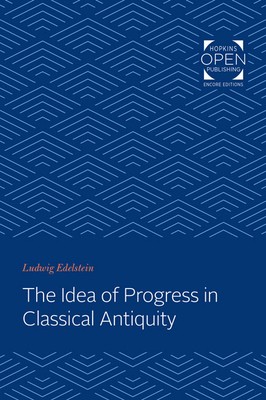
- We will send in 10–14 business days.
- Author: Ludwig Edelstein
- Publisher: Johns Hopkins University Press
- ISBN-10: 1421435578
- ISBN-13: 9781421435572
- Format: 15.2 x 22.9 x 1.5 cm, minkšti viršeliai
- Language: English
- SAVE -10% with code: EXTRA
Reviews
Description
Originally published in 1967. Ludwig Edelstein characterizes the idea of "progress" in Greek and Roman times. He analyzes the ancients' belief in "a tendency inherent in nature or in man to pass through a regular sequence of stages of development in past, present, and future, the latter stages being--with perhaps occasional retardations or minor regressions--superior to the earlier." Edelstein's contemporaries asserted that the Greeks and Romans were entirely ignorant of a belief in progress in this sense of the term. In arguing against this dominant thesis, Edelstein draws from the conclusions of scholars of the nineteenth and early twentieth centuries and discusses ideas of Auguste Comte and Wilhelm Dilthey.
EXTRA 10 % discount with code: EXTRA
The promotion ends in 22d.04:45:26
The discount code is valid when purchasing from 10 €. Discounts do not stack.
- Author: Ludwig Edelstein
- Publisher: Johns Hopkins University Press
- ISBN-10: 1421435578
- ISBN-13: 9781421435572
- Format: 15.2 x 22.9 x 1.5 cm, minkšti viršeliai
- Language: English English
Originally published in 1967. Ludwig Edelstein characterizes the idea of "progress" in Greek and Roman times. He analyzes the ancients' belief in "a tendency inherent in nature or in man to pass through a regular sequence of stages of development in past, present, and future, the latter stages being--with perhaps occasional retardations or minor regressions--superior to the earlier." Edelstein's contemporaries asserted that the Greeks and Romans were entirely ignorant of a belief in progress in this sense of the term. In arguing against this dominant thesis, Edelstein draws from the conclusions of scholars of the nineteenth and early twentieth centuries and discusses ideas of Auguste Comte and Wilhelm Dilthey.


Reviews